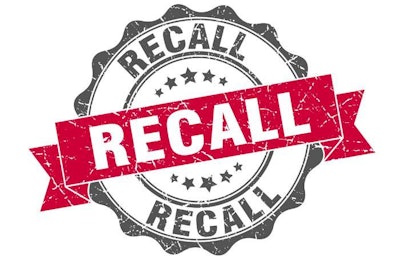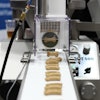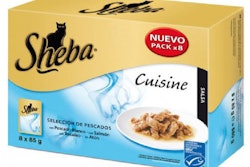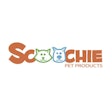
The U.S. Food and Drug Administration cautioned pet owners not to feed their pets certain lots of Texas Tripe Inc. raw pet food after samples from some of these lots tested positive for Salmonella and/or Listeria monocytogenes (L. mono). Texas Tripe Inc. recalled 35 lots for each of 23 raw pet food product varieties. A list can be found under “What products are involved?” in FDA’s announcement. The firm initiated a recall on July 3, 2019 by directly notifying some of its customers via email.
FDA sampled products that tested positive for Salmonella and/or Listeria monocytogenes (as of 8/13/19):
- Texas Tripe Chicken Blend - Lot 19196-6
- Texas Tripe Pork Blend - Lot 19190-09
- Texas Tripe Beef Blend - Lot 19191-05
Because these products are sold and stored frozen, FDA is concerned that people may still have them in their possession.
Salmonella and L. mono can affect both human and animal health. People with symptoms of Salmonella and L. mono infection should consult their health care providers. Consult a veterinarian if your pet has symptoms of Salmonella or L. mono infection.
History of Texas Trip raw pet food recall
The Office of the Texas State Chemist (OTSC) collected 23 finished product samples at Texas Tripe Inc. Of the 23 samples, 16 tested positive for L. mono and/or Salmonella.
FDA followed up these findings with an inspection. Agents collected and analyzed samples of unopened finished product, after the firm performed corrective actions, from additional lots of some of the same products tested by OTSC. FDA testing showed some of the samples contained Salmonella and/or L. mono.
FDA and OSTC shared their test results with Texas Tripe Inc. The firm initiated a recall on July 3, 2019 by directly notifying some of its customers via email.
Texas Trip raw pet food product details
The recalled Texas Tripe Inc. products are sold frozen in 20-pound and 40-pound cases. These cases contain multiple plastic pouches. Lot codes to help identify recalled product are printed on the outside of the cases, but the lot codes are not printed on the individual sealed plastic pouches, also known as chubs. Therefore, if the case has been discarded, there are no unique identification numbers on the individual chubs that allow customers to determine that they possess the recalled products.
If you have any of the product varieties listed below and cannot determine whether it is affected by the recall, FDA recommends that you exercise caution and throw the product away.
These products are manufactured by Texas Tripe Inc. and are sold direct to consumers online and by phone.
The chart below lists the recalled products and lot numbers provided by the firm to FDA on 8/6/2019. Below the chart are additional product lots sampled by FDA that tested positive for Salmonella and/or L. mono, that the firm has not recalled. According to the firm, recalled products have been sold directly to consumers in the following states: Alabama, Arizona, Arkansas, California, Colorado, Florida, Georgia, Illinois, Kansas, Kentucky, Louisiana, Michigan, Mississippi, Missouri, New Jersey, New Mexico, New York, North Carolina, Ohio, Oklahoma, Pennsylvania, Tennessee, Texas and Virginia.

















